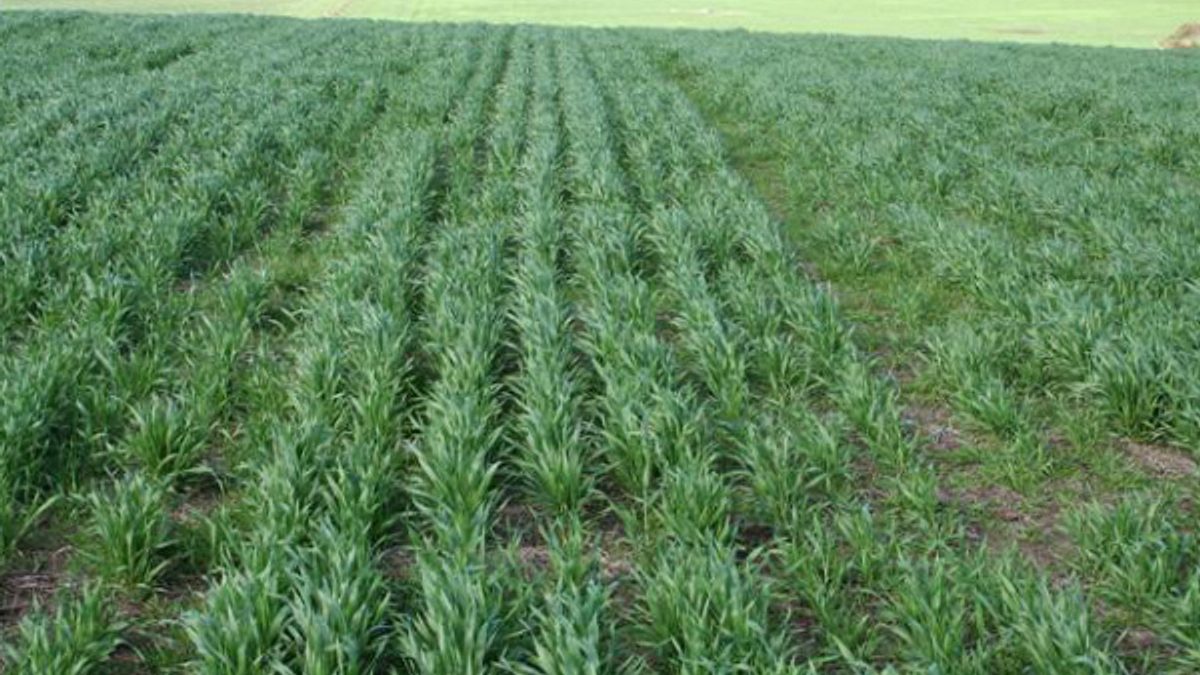Managing soil and pastures
Healthy soils are essential for healthy plant growth, food production for human nutrition and ecosystem services such as clean water and air. Healthy soils help to regulate the earth's climate and store more carbon than all of the world's forests combined.
The effective management of soils and pastures is fundamental to the productivity of the agricultural industry and to the health of the environment in the Adelaide Hills and Fleurieu region. Soil health, pasture quality and erosion affect grazing and crop production, vegetative cover and the quality of groundwater and water run-off into watercourses.
Soil and pasture degradation can be caused by over-grazing, over-cropping and compaction from livestock or machinery, particularly in waterlogged areas and minor watercourses. Valuable farming land can also be lost through erosion, when wind and water removes topsoil and wears away land. While erosion is a natural process, it can be hastened by fire, drought, flood, overgrazing and loss of vegetation cover. Sound land management practices can combat erosion and improve soil and pasture quality.
To inspire you and give you some great ideas, explore the successful case studies in this new book from the ANU - '10 Ways to Improve Natural Assets on a farm'.
Weeds found in your pastures can also tell you a lot about the health of your soils and indicate issues. Understanding these issues, and how to rectify them is an important management approach. Take a look at our guide, 'Using pasture weeds to read the landscape' and discover what your weeds are really telling you.
You can improve your land management by:
- familiarising yourself with the basics of soil and pasture biology
- monitoring the health and productivity of your soils and pastures
- actively promoting healthy and productive soils
- seeking advice from experts on how best to achieve these goals
- not overgrazing your pastures
- fencing your property to land class for grazing purposes
- excluding livestock from seasonally waterlogged areas.
Paul Neighbour owns a 400 ha property at Back Valley on the Fleurieu Peninsula. Watch this video to see how Paul plans for the property, the steps he takes to manage his cattle and pastures and also what he is doing to help protect the bushland and creeks on his property.
Hear from land manager Paul Neighbour about how he plans for his 400 hectare property
The benefits of using dung beetles
Sometimes referred to as ‘nature’s architects’, dung beetles are a desirable part of a healthy landscape and can significantly improve your overall soil health. Learn about establishing dung beetles and managing threats to their wellbeing - the resources on this page, including videos, will help you.
Managing erosion
Erosion can impact greatly on land production and the environment. Areas prone to erosion should be managed differently.
You can reduce erosion on your property by:
- conserving native vegetation in and around streams and wetlands
- using minimal tillage, which is an established method of maximising cropping production while minimising the potential for erosion
- maintaining perennial pasture species to provide more permanent groundcover than annual pastures
- avoiding overgrazing by livestock
- controlling feral herbivores such as rabbits, hares, goats and deer
- considering revegetation or farm forestry using native species for areas of erosion.
Erosion can impact greatly on land production and the environment. This erosion control case study is on a farm located near Yankalilla on the Fleurieu Peninsula.

